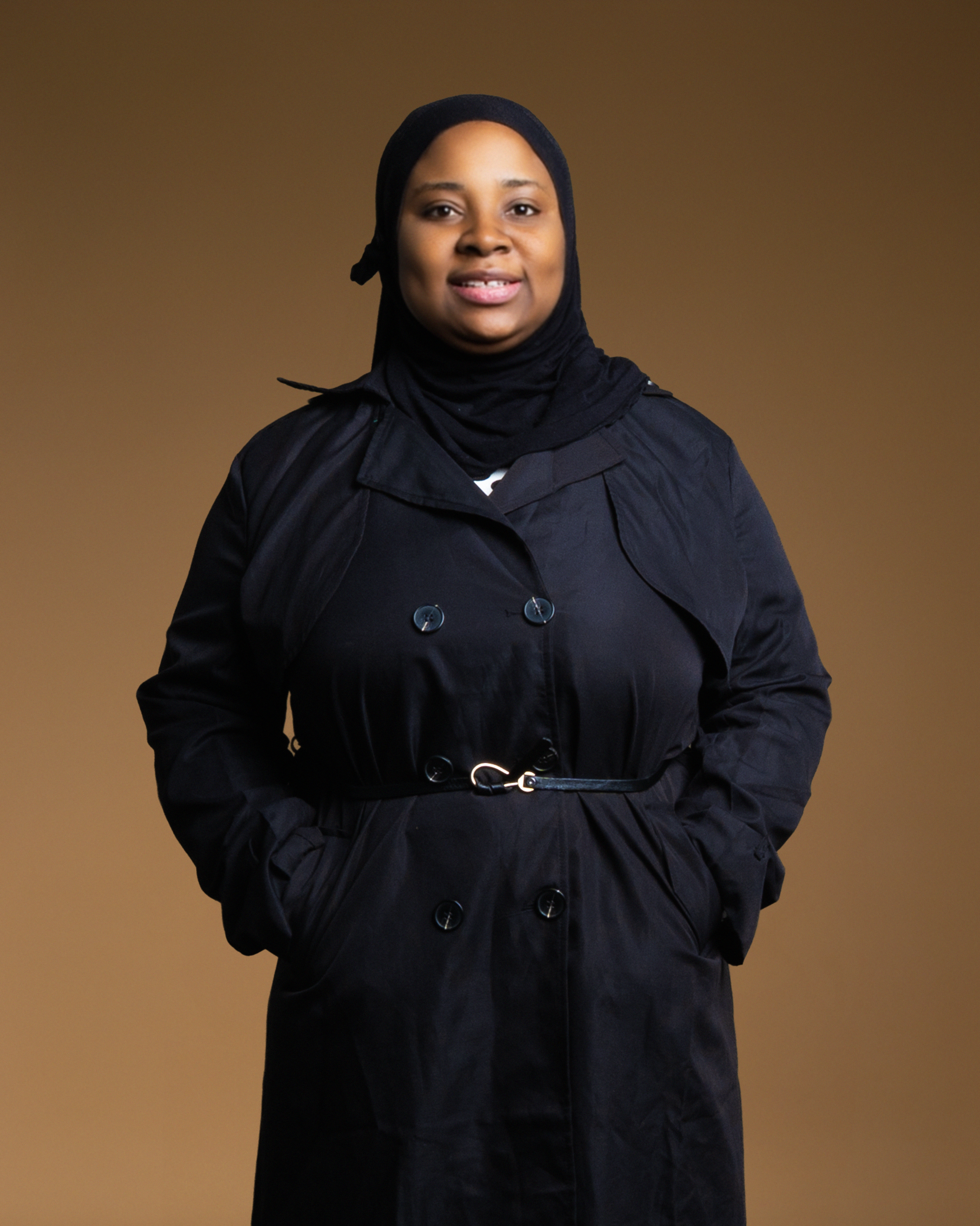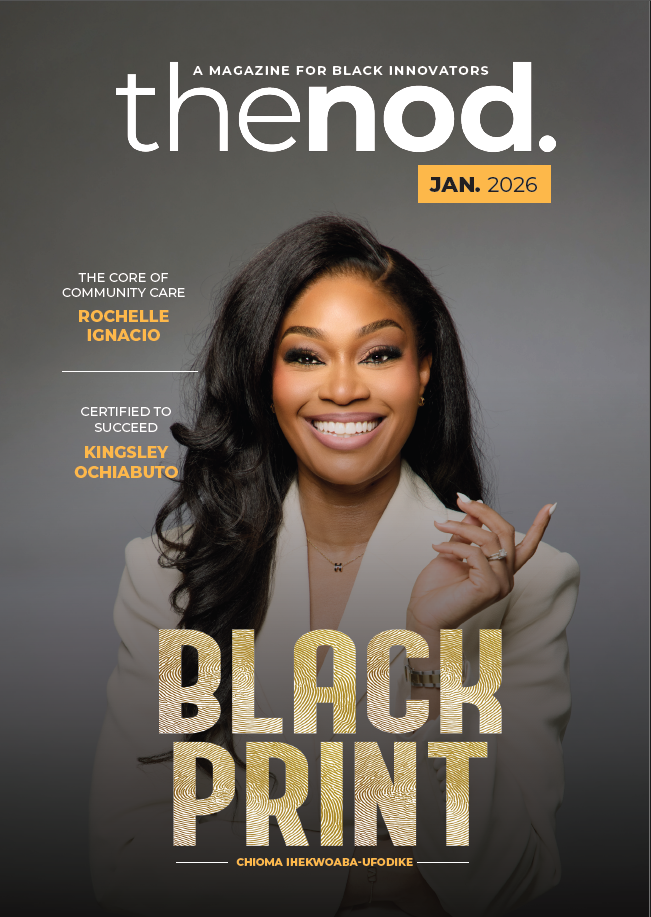As a first-generation immigrant from Ghana, I have always viewed technology as a tool to tackle global challenges. This inspired me to co-found PrintedSUN Inc., a company revolutionising healthcare with printed OLED technology. Our flagship product, an OLED-enabled phototherapy wrap, offers a portable, precise, and sustainable solution for neonatal jaundice treatment—making care non-invasive, affordable, and accessible.
Support from initiatives like Innovate Calgary’s evolve-to-innovate program, NSERC’s Lab2Market validation, and the BIPOC Foundation’s Accelerator helped transition our research into a commercial venture. Winning first place in the Newcomer Founders in Tech Pitch Competition affirmed our mission. Now, as an entrepreneur-in-residence at the University of Calgary’s Hunter Hub for Entrepreneurial Thinking, I am fortunate to be mentored by seasoned entrepreneurs who have navigated similar paths to mine.
The Birth of PrintedSUN
PrintedSUN’s groundbreaking ability to print LEDs on any surface is the result of years of dedicated research aimed at overcoming the limitations of traditional electronics, particularly in healthcare. During my postdoctoral work at the University of Calgary, I developed scalable, flexible OLEDs using roll-to-roll printing techniques. By using organic materials instead of expensive metal semiconductors, we created lightweight, adaptable devices that can be printed on textiles, plastics, and even biodegradable substrates—perfect for healthcare applications.
Scaling from lab prototypes to industrial production required rethinking material formulations, refining printing techniques, and ensuring durability in real-world conditions. Collaborations with industry partners and support from programs like Innovate Calgary’s e2i were crucial in overcoming these challenges. Navigating regulatory hurdles, securing funding, and protecting intellectual property further paved the way for commercialization.
Today, PrintedSUN’s versatile OLED technology goes beyond neonatal care, with applications in health monitoring, agriculture, and marketing—delivering innovative solutions across diverse sectors.
What Sets PrintedSUN’s LEDs Apart
PrintedSUN’s OLEDs redefine the standards of health monitoring and therapy. Unlike traditional LEDs that require additional components like diffusers for uniform light emission, our OLEDs deliver consistent, large-area light—a critical factor in therapies like neonatal phototherapy. This ensures more effective and reliable treatments.
Ultra-thin and flexible, our OLEDs integrate seamlessly into wearable devices, enabling continuous monitoring or treatment without discomfort. For example, the Phototherapy Wrap offers a portable, non-invasive solution for neonatal jaundice treatment, allowing parents to bond with their newborns while ensuring effective care.
Balancing Innovation Across Diverse Industries
While healthcare remains our core focus, the versatility of our OLED technology has allowed us to explore other industries, including agriculture and marketing. PrintedSUN’s OLEDs can be used for precision farming, where tailored wavelengths support sustainable practices, and in marketing, where our technology enables creative and energy-efficient advertising on unconventional surfaces.
Maintaining focus on healthcare while expanding into other industries requires strategic planning and resource allocation. We have built specialized teams for each sector and maintain strategic partnerships with industry leaders to ensure that we are meeting the unique needs of each market. However, the values of sustainability, scalability, and efficiency are consistent across all sectors, guiding our innovation as we grow.
The Future of Smart LED Technology in Healthcare
Looking ahead, smart LED technology will continue to play a transformative role in healthcare. OLEDs, with their ability to provide precise wavelength control, are already revolutionizing therapeutic applications like phototherapy for neonatal jaundice, wound healing, and even anti-microbial treatments. Their flexibility allows them to be integrated into wearable devices like electronic bandages, enabling continuous monitoring and therapy outside of traditional clinical settings.
As part of the broader Internet of Medical Things (IoMT), smart LEDs will also facilitate real-time data sharing and integration with AI systems, enhancing diagnostics and treatment personalization. The potential to combine these devices with AI-driven platforms will optimize clinical decision-making, making healthcare more accessible, efficient, and patient-centred.
Sustainability and Global Health Equity
Sustainability is deeply embedded in PrintedSUN’s mission. Our eco-friendly manufacturing processes not only reduce environmental impact but also make our technology more accessible. By focusing on affordability and portability, we are tackling global health inequities. The Phototherapy Wrap, for instance, can be used in remote regions, offering a sustainable and effective treatment for neonatal jaundice without the need for costly, bulky hospital equipment. This device empowers caregivers to manage care outside clinical settings, making healthcare more accessible in areas with limited medical infrastructure.
By using sustainable materials and energy-efficient design, we reduce the environmental footprint of healthcare products, an important consideration in regions with limited resources. PrintedSUN’s work is not just about innovation; it’s about making a real, positive difference in underserved communities globally.
Future of PrintedSUN
Building a startup that intersects technology, health, and design has taught me many valuable lessons. One of the most important is the need for user-centered design. Our products are only effective if they meet the needs of the people who use them. This focus on practical, scalable, and user-friendly designs has shaped our approach at PrintedSUN. We are constantly refining our products to ensure they are not only technically advanced but also accessible and easy to use in diverse settings.
As we continue to grow, we remain focused on leveraging our technology to solve some of the world’s most pressing healthcare challenges. Whether it’s improving neonatal care or advancing health monitoring, we are committed to creating solutions that are both sustainable and impactful, ensuring a healthier future for everyone.









